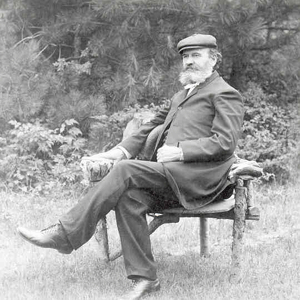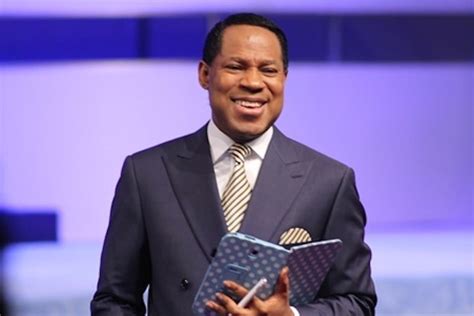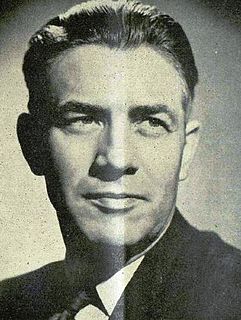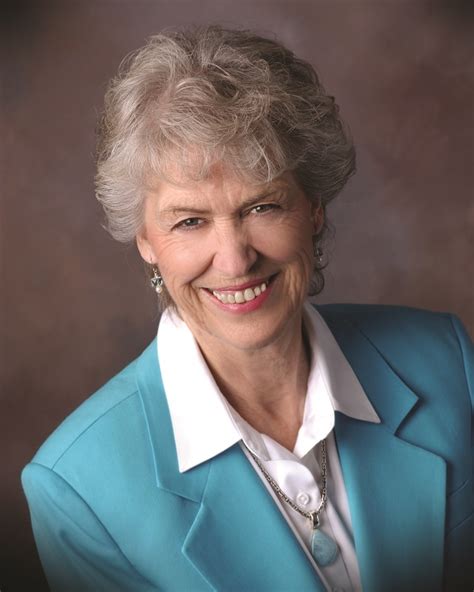A Quote by Horace Bushnell
Feeble are we? Yes, without God we are nothing. But what, by faith, every man may be, God requires him to be. This is the only Christian idea of duty. Measure obligation by inherent ability! No, my brethren, Christian obligation has a very different measure. It is measured by the power that God will give us, measured by the gifts and possible increments of faith. And what a reckoning will it be for many of us, when Christ summons us to answer before Him under the law, not for what we are, but for what we might have been.
Quote Topics
Related Quotes
In the doctrine of Providence, we have a specific Christian confession exclusively possible through faith in Jesus Christ. This faith is no general, vague notion of Providence. It has a concrete focus: ‘If God is for us, who is against us? He that spared not his own Son, but delivered him up for us all, how shall he not also with him freely give us all things?’ (Rom.8:31, 32).
God wants us to speak to men so that they will feel it, so that they will never forget it. God means every Christian to be effective, to make a difference in the actual records and results of Christian work. God put each of us here to be a power. There is not one of us but is an essential wheel of the machinery and can accomplish all that God calls us to.
In the first section of the Doctrine and Covenants we read that 'the Lord shall come to recompense unto every man according to his work, and measure to every man according to the measure which he has measured to his fellow man.' (D&C 1:10.) This principle, showing the manner by which God will judge us, puts a new light upon the commandment to love our neighbors as ourselves, and should persuade us to take that law seriously.
God's love has a width, length, height, and depth, but we will never reach the end of it. Our capacity to experience God's love will be exhausted long before God's capacity to give it is strained. The picture of having Christ dwell inside us by faith presents us with compelling and comforting possibilities. What Christ does in us and through us will always be 'exceedingly abundantly above all we ask or think.'
Christian community is like the Christian's sanctification. It is a gift of God which we cannot claim. Only God knows the real state of our fellowship, of our sanctification. What may appear weak and trifling to us may be great and glorious to God. Just as the Christian should not be constantly feeling his spiritual pulse, so, too, the Christian community has not been given to us by God for us to be constantly taking its temperature.
I know that God loves us. He allows us to exercise our moral agency even when we misuse it. He permits us to make our own decisions. Christ cannot help us if we do not trust Him; He cannot teach us if we do not serve Him. He will not force us to do what's right, but He will show us the way only when we decide to serve Him. Certainly, for us to serve in His kingdom, Christ requires that we experience a change of thought and attitude.
The duties God requires of us are not in proportion to the strength we possess in ourselves. Rather, they are proportional to the resources available to us in Christ. We do not have the ability in ourselves to accomplish the least of God's tasks. This is the law of grace. When we recognize it is impossible for us to perform a duty in our own strength, we will discover the secret of its accomplishment.
The Christian is in a different position from other people who are trying to be good. They hope, by being good, to please God if there is one; or — if they think there is not — at least they hope to deserve approval from good men. But the Christian thinks any good he does comes from the Christ-life inside him. He does not think God will love us because we are good, but that God will make us good because He loves us; just as the roof of a greenhouse does not attract the sun because it is bright, but becomes bright because the sun shines on it.
God wants to be our partner throughout life. Too often we are tempted to either carry the entire load ourselves or give everything to God and do nothing. God doesn't like either strategy. Sometimes He moves before us and sometimes after us - but He doesn't move without us. Without God... we cannot. Without us... God will not.
God allows us to dace difficulties so that our faith will be stretched and refined. The trials we face provide an excellent opportunity for us to declare our dependence on God and not on ourselves. The way we win the battle with discouragement is by humbling ourselves before God and telling Him that we need Him. There is only one way to do this, and it is through prayer.
Trust in the Lord is the only true antidote to fear. Focusing on God rather than the trial will keep us from sinking in fear. However, learning to face our fears does not mean we will never have another anxious moment. Faith does not lie in trusting God to stop the storm, but in trusting Him to enable us to walk through the storm. When trouble occurs, He will give us the ability to cope with it.
We, however, have a different goal: the Son of God, the true man. He is the measure of true humanism. An "adult" faith is not a faith that follows the trends of fashion and the latest novelty; a mature, adult faith is deeply rooted in friendship with Christ. It is this friendship that opens us up to all that is good and gives us a criterion by which to distinguish the true from the false, and deceit from truth.

































